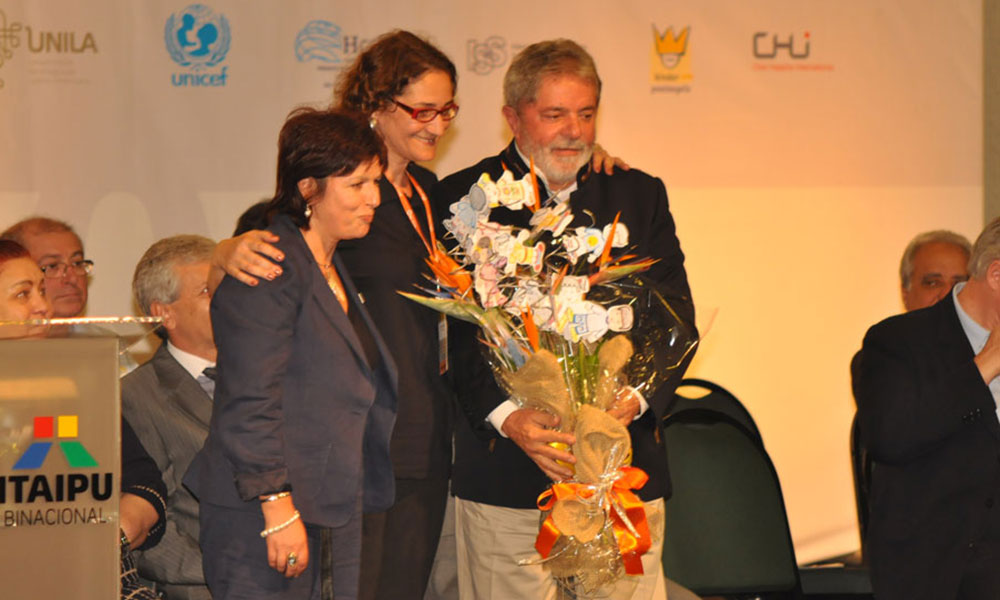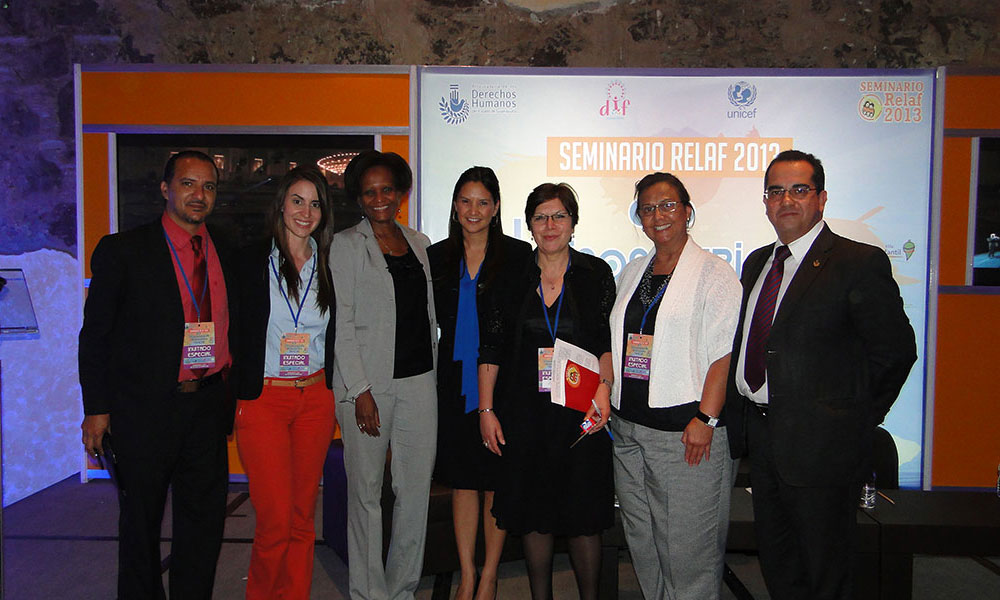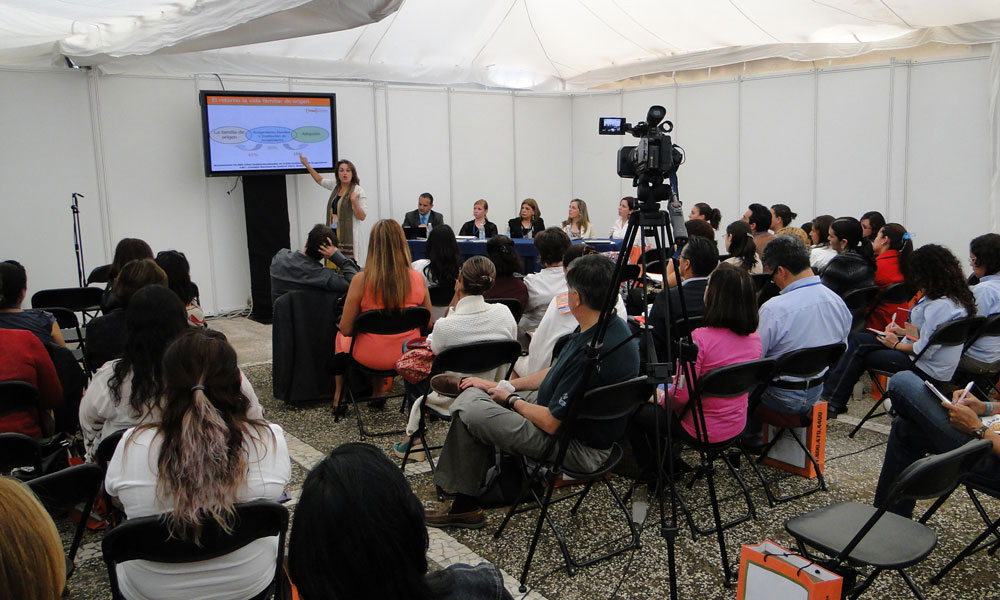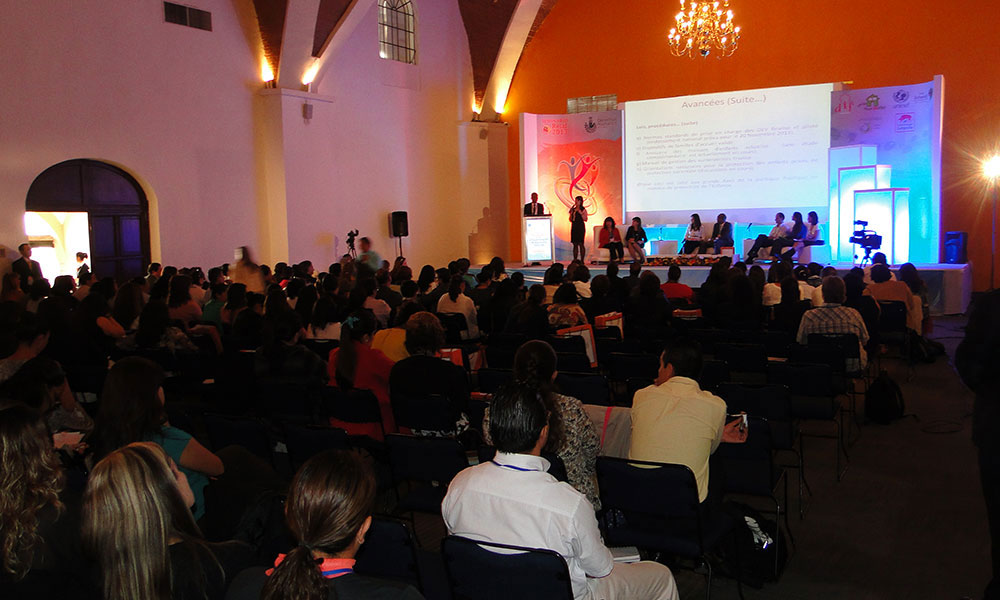SEMINARS
2010 SEMINAR
-
- Place
- PTI – Parque Tecnológico Itaipu, Av. Tancredo Neves 6731. Foz do Iguaçu, Brazil
-
- Date
- September 2, 3 and 4, 2010
-
- Realization
- September 2, 3 and 4, 2010
-
- Main topics
1. Childrens’ rights approach, foster care.
2. Foster care and its articulation and interconnection with practices aimed at guaranteeing the right to family and community life.
3. Foster care within the framework of paradigm shift.
4. Issues that lead to foster care.
5. Innovations in foster care.
OBJECTIVE
Basis
Latin American countries have ratified international human rights tools that oblige them to take the necessary actions to defend the right of children and to live in a family and a community. What was stipulated on the Convention on the Rights of the Child was complemented by other Human Rights tools, such as the UN Guidelines for the Alternative Care of Children.
The governments and the civil society organizations in the region have understood the necessity to guarantee this basic Right to a greater or lesser extent. Thus, they have started to change their practices aimed at protecting the rights of children deprived of parental care.
RELAF’s purpose is to promote dialogue that leads to the search for forms of alternative care based in family life in Latin America in the framework of the fulfilment of all the rights of the child. We believe that the practice of foster care under certain parameters is a way to guarantee the right to live in a family and a community.
The 2010 Relaf Seminar is an opportunity to meet, learn and exchange. The Seminars of 2007 and 2009 laid the conceptual foundations for the work with children and their families; in this Seminar, we will focus on the region’s concrete breakthroughs. Although there is still a long way to go, it is necessary to boost the progress achieved, extend the actions, and create new opportunities.
Overall goal:
This Seminar seeks to provide an opportunity for reflection and exchange on the work, learnt lessons, strengths, breakthroughs and challenges regarding the fulfilment of the children’s right to family life in the region.
Specific goals:
1. To get to know experiences that allow for a better understanding of the role of the main actors involved in the provision of alternative care, especially foster care: public institutions, NGOs and other civil society organisations (media, universities, families, etc.).
2. To strengthen the regional network, identifying the breakthroughs in the fulfilment of commitments and goals established in previous meetings. This way, we expect to continue the advocacy process for the creation of favourable public policies in the region in the medium and long terms.
3. Presentations will tackle the following issues:
• New challenges regarding the deprivation of family life within the framework of the implementation of the CRC and the UN Guidelines for the Alternative Care of Children.
• Innovative alternative care initiatives.
• The difficulties to implement practices with a children’s rights approach and to deconstruct institutional care within comprehensive child protection systems.
• The application of the standards and guidelines established in the CRC for the restoration of the right to family and community life.
4. To move forward in the identification of challenges and facilitators regarding the practice of foster care, in the context of the fulfilment of the right to family life in the region.
5. To promote the exchange and discussion of successful experiences carried out in LAC that can be potentially replicated in other countries of the region.
SEMINAR
“Celebration of experiences. Strengthening advances to guarantee the right to a family”
The fulfilment of the right to family life, in its different forms as well as in its violations, is starting to emerge in the LAC public agenda. Several countries are conducting surveys regarding the number of children deprived of parental care in its two most visible manifestations: homeless children and institutionalised children. Nevertheless, the experiences intended to guarantee said right are minimal in each country and in the region as a whole. There is a very long way to go in order to turn these experiences into sustained public policies.
The exchange and discussions will focus on practical foster care experiences. The context will be broad, articulating concepts and practices while considering their particular social, historical and political realities. We intend to promote debate on the following subjects:
1. Foster care and children’s rights approach
Practices aimed at reforming the legal and institutional frameworks in order to guarantee the right to family and community life:
1. Projects, programmes and national plans that use this approach.
2. New laws or modification of already-existing laws on the matter.
3. Management models regarding the right to a family: means of interconnection between governments, international organisations, and the civil society.
2. Foster care and its articulation and interconnection with practices aimed at guaranteeing the right to family and community life
Experiences aimed at articulating foster care with family strengthening.
Experiences aimed at articulating foster care with adoption.
Experiences aimed at articulating with other rights restoration programmes: recovery from abuse, education, etc.
3. Foster care within the framework of paradigm shift
Deinstitutionalisation experiences.
Adaptation of foster care programmes inherited from children’s institutions.
4. Issues that lead to foster care
Programmes aimed at young children
Programmes aimed at migrant children
Programmes aimed at unaccompanied children who are out of their country of origin.
Programmes aimed at children who have been victims of severe abuse, sexual abuse or sexual exploitation.
Programmes aimed at children who are undergoing natural or environmental catastrophes.
Programmes meant to address other issues (homeless children, children in conflict with the law, children with HIV, etc.).
5. Innovations in foster care
Experiences with approaches on gender and native peoples.
Experiences that train foster families so that they can adequately care for children.
Experiences that raise awareness of the issue, disseminate it, and recruit families.




